News
Published on Fri, 2012-09-28 10:53
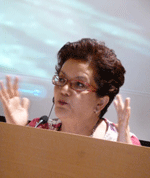
Zeyneb Farhat, ATFD.
(Photo: Isart)
|
Tunisian civil society is rallying in support of a 27 years-old woman who accused two policemen of raping her on September 3. The woman and her fiancé were summoned by a judge on Wednesday to face charges of “indecency” brought by those officers. Leading non governmental organizations, including the Tunisian Association of Democratic Women (ATFD) and the Tunisian League of Human Rights (LTDH), have formed a committee to co-ordinate a campaign to defend the couple.
|
Published on Thu, 2012-09-27 13:18
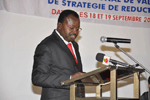
Togolese premier Ahoomey-Zunu
opens the workshop to validate
the PRSP II. (Photo: Secrétariat
Technique du DSRP)
|
Since the first decade of the 21 century, the World Bank and the IMF have promoted the Poverty Reduction Strategy Papers (PRSP) as a brand new methodology, better than their controversial structural adjustment plans. But, in spite the change of names, the Bretton Woods institutions still consider economic growth as an unavoidable step in the fight against poverty, with little mention to the distribution of wealth. Togo is an example. Samir Abi, president of non governmental organization Visions Solidaires, analyzed the recently finished second Togolese PRSP validation process.
|
Published on Tue, 2012-09-25 11:02
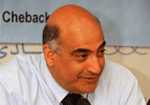
Ziad Abdel Samad, Executive
Director of the ANND.
(UN photo)
|
Arab civil society organizations warned that the European Union (EU) “more for more” approach and the economic model it promotes is inconsistent with the national paths towards democracy and social and economic policies that the region proposes.
|
Published on Tue, 2012-09-25 08:57
The Comprehensive Economic and Trade Agreement (CETA) that Canada and the EU are negotiating behind closed doors would result in as many as 70,000 job losses in Ontario and would undermine independent government decision-making, according to a new report produced by the Canadian Centre for Policy Alternatives’ (CCPA) office in that province.
|
Published on Mon, 2012-09-24 08:52
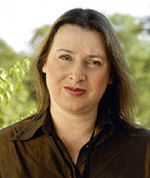
Genoveva Tisheva. (Photo: EWLA)
|
The austerity package recently approved by the Greek government will “damage progress towards gender equality in the European Union” and “poses fundamental questions about sovereignty and self-determination in Europe, about people’s choices and what they imply,” wrote Genoveva Tisheva, managing director of the Bulgarian Gender Research Foundation (BGRF, focal point of Social Watch in that country), in an article published in the web site of the European Women Lawyers’ Association (EWLA).
|
Published on Mon, 2012-09-24 08:39

Nabeel Rajab. (Photo: Avaaz)
|
The regime of Bahrain accepted completely 145 recommendations and 13 partially out of the 176 submitted by other States to the UN Human Rights Council last May, as a result of the sustained efforts made by local and international civil society organizations at the session of the organ that is taking place in Geneva. But the Bahraini Human Rights Observatory warned that implementing the suggestions will require “international monitoring”.
|
Published on Thu, 2012-09-20 07:28
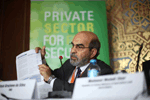
FAO director-general José
Graziano da Silva.
(Photo: FAO/Ozan Kose)
|
Relevant environmental and peasant groups declared themselves “shocked and offended” because the heads of the Food and Agriculture Organization of the UN (FAO) and the European Bank for Reconstruction and Development (EBRD) called on governments to embrace corporations as the “main engine” for global food production growth. In a collective statement, the civil society organizations said the FAO is abandoning its mission by “promoting the destruction of peasant and family farming” and the “land grabbing”.
|
Published on Wed, 2012-09-19 14:39
The Eritrean Movement for Democracy and Human Rights (EMDHR, national focal point of Social Watch) held a comprehensive seminar last week as part of its commemoration of the 18th September 2001, when Eritrean reformists and independent media journalists were kidnapped and disappeared since.
|
Published on Tue, 2012-09-18 13:26

Photo: EACPE
|
Officially registered with the Ministry of Manpower earlier this month, Egypt’s first labor union of domestic workers is the result of an initiative by the Egyptian Association for Community Participation Enhancement (EACPE, focal point of Social Watch in that country), which launched a project to protect them last year.
|
Published on Mon, 2012-09-17 15:31

Philip Thigo (Photo: Linda Essner)
|
Philip Thigo, 36, grew up in Kibera, the largest slum in Nairobi. After studying at Princeton and working abroad, he is now back where it all began. "I realized that my skills were needed in Kenya and decided to go home", he said. Now he works to strengthen democracy and poor people’s rights with the Social Development Network (Sodnet) , an NGO working to mobilize and channel social engagement, focal point of Social Watch in that African country.
|

|












